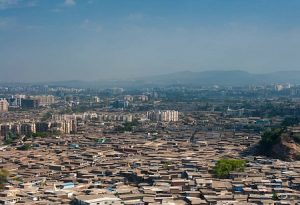The Adani Group-led Dharavi Redevelopment Project (DRPPL) has stirred a contentious debate surrounding the redevelopment of Dharavi slums, with significant implications for both railway employees’ families and environmental conservation efforts in the Matunga area.

A total of 255 railway employees’ families face displacement as a result of the DRPPL, alongside the impending loss of substantial green cover spanning approximately six to seven acres. This development comes to light following a high-level meeting chaired by Anil Kumar Khandelwal, Chairman of the Railway Land Development Authority (RLDA), which oversees the mega redevelopment initiative on behalf of Indian Railways.
Sources reveal that on March 22, the Western Railway (WR) administration issued a directive titled ‘Discontinuing Allotment of Quarters in Mumbai Area,’ indicating a paradigm shift in land usage in Dadar, Mahim, and Matunga. Per the agreement between the Dharavi Redevelopment Project Slum Rehabilitation Authority and RLDA, a designated parcel of land in these areas is earmarked for redevelopment and transfer to DRP. Notably, the entire Matunga Road colony area is slated for transfer to RLDA and DRP, signaling significant changes to the urban landscape. This move has sparked considerable controversy, drawing attention to the trade-off between urban development and environmental conservation. While the redevelopment project promises infrastructural upgrades and socio-economic benefits for Dharavi residents, concerns have been raised regarding the displacement of railway employees’ families and the loss of green cover in Matunga.
Critics argue that the proposed redevelopment plans must prioritise the welfare of affected communities and mitigate adverse environmental impacts. Additionally, calls for transparent stakeholder engagement and participatory decision-making processes underscore the need for inclusive urban development strategies. As the debate intensifies, stakeholders are urged to strike a delicate balance between developmental aspirations and environmental stewardship. Collaborative efforts between government agencies, developers, and civil society are imperative to navigate the complexities of urban redevelopment while safeguarding ecological integrity and addressing socio-economic disparities.


